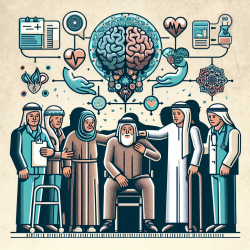In the ever-evolving field of pediatric occupational therapy, the importance of data-driven decisions cannot be overstated. A recent study titled Occupational Therapy Practice in Mainstream Schools: Results from an Online Survey in Switzerland offers valuable insights into how occupational therapists can better serve children in mainstream schools.
This study surveyed 302 occupational therapists in Switzerland, focusing on their collaboration with schools, the structural and contextual aspects of their services, and the occupational therapy process within mainstream schools. Here are some key findings and actionable takeaways for practitioners:
Collaboration with Schools
The survey revealed that nearly all occupational therapists (97%) collaborate with schools, with 49% providing direct services within mainstream school settings. These services are primarily funded by health insurance and focus on adapting physical and social environments. This underscores the need for interdisciplinary collaboration to support inclusive education effectively.
Structural and Contextual Aspects
Occupational therapists primarily support children diagnosed with Developmental Coordination Disorder (DCD), Attention Deficit Hyperactivity Disorder (ADHD), and Autism Spectrum Disorder (ASD). The study highlights that most services are paid by health or disability insurance, which may limit the ability to support children without a medical diagnosis.
Occupational Therapy Process
Most occupational therapists use nonstandardized evaluation tools, although standardized assessments like the School Assessment of Motor and Process Skills (School AMPS) and the Movement Assessment Battery for Children (M-ABC) are available. Services are often provided in natural school settings such as classrooms and schoolyards, which aligns with best practices for inclusive education.
Actionable Takeaways
- Embrace Interdisciplinary Collaboration: Regularly communicate with school staff through various means, including phone calls, emails, and roundtable discussions.
- Focus on Environment Adaptation: Prioritize adapting the physical and social environments to support inclusive education effectively.
- Use Standardized Assessments: Incorporate standardized tools like School AMPS and M-ABC to enhance the evaluation process.
- Advocate for Policy Changes: Push for changes in federal health and education legislation to better support inclusive education and occupational therapy services.
By implementing these strategies, occupational therapists can enhance their practice and contribute significantly to inclusive education. For a deeper dive into the research, please read the original paper: Occupational Therapy Practice in Mainstream Schools: Results from an Online Survey in Switzerland.










